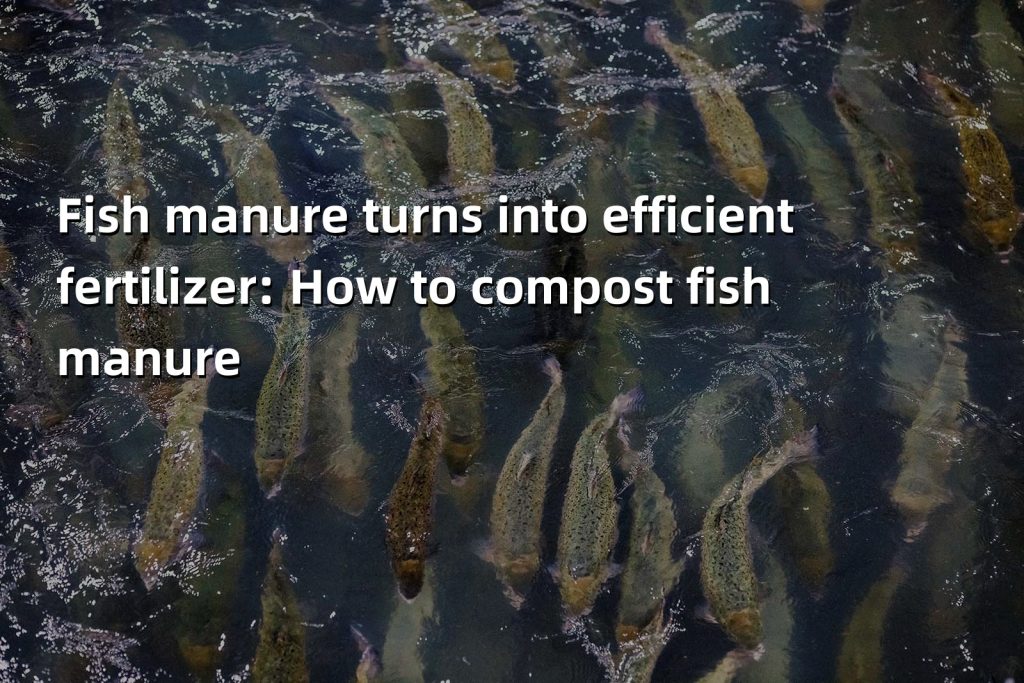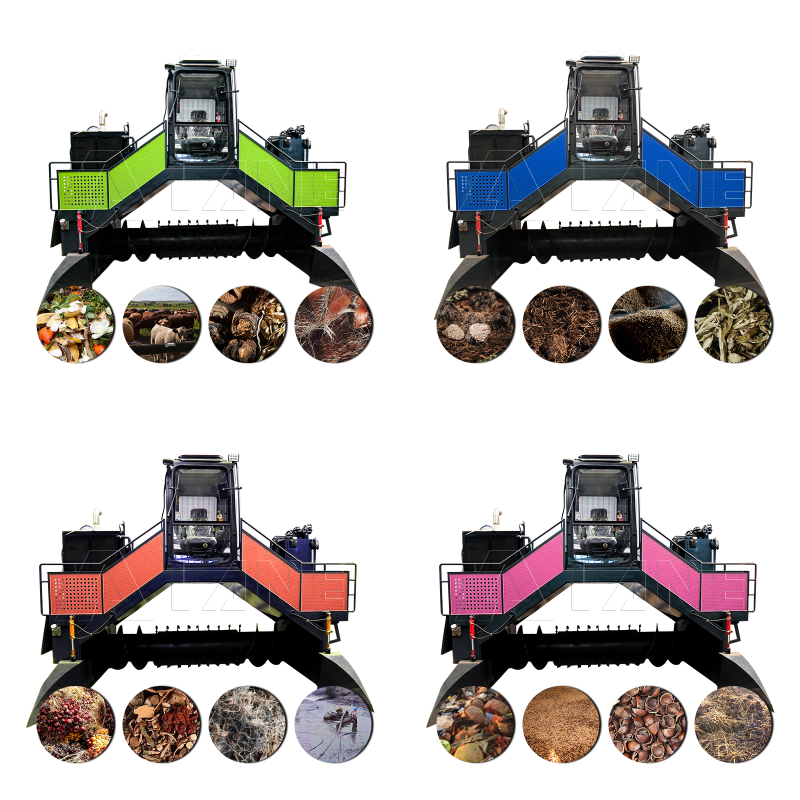Some countries have also passed laws and regulations prohibiting the disposal of fish waste into fresh water or within 100 feet of the shore, except in exceptional circumstances. Therefore, in the face of such a large amount of fish waste, if it is not properly handled, the surrounding humans will face an increasingly serious crisis and our ecosystem will be damaged.
So how to deal with these large amounts of fish waste?
LANE has a new idea to compost fish manure. Not only solve environmental problems, but also bring new business opportunities.
What does composting fish manure mean?
Composting is the process of decomposing organic matter under a controlled environment. It is a natural organic fertilizer made by mixing various plant wastes (such as cow dung, fish dung, crop straw, weeds, leaves and other wastes) with human and animal feces and undergoing a decomposition process. From past experience, fish manure composting is a relatively novel, practical and environmentally friendly way to deal with fish waste, which can remove unwanted parts and their stench from fish manure and convert fish manure into valuable products with market value on the soil.
When composting, unwanted waste such as fish manure should be mixed with wood and green waste (such as leaves, crop straw, sawdust, wood chips, etc.) to provide a receiving bed for fish manure. During the composting process, microorganisms in the pile feed on the waste, generate a lot of heat, pasteurize the waste, remove stench, and kill pathogenic organisms.
How to compost fish manure with a compost turner?
Fish manure composting is an effective way to convert fish remains into organic materials. It is a natural and beneficial process that can produce fertilizer for farmland, gardens and other farms. Here, let’s talk about fish manure composting technology and some key points.
Collect the fish manure and place it in layers with carbon (wood chips, rice husks or straw, etc.), nitrogen (fish remains), air and moisture. Remember to turn the compost for aeration, which ensures that the compost gets enough air for better composting. There is a compost turner that is specially designed for oxygen fermentation of organic materials. LANE’s machine is advanced in technology, sturdy in materials, highly automated, easy to operate, and has a large capacity, all of which make it a popular compost turner among large farmers in the United States and Europe.
Typically, a commercial or industrial composting facility should be a fairly large-scale operation project that is carefully controlled and always away from crowded areas because fewer people are bothered by the odor and pests of these composting facilities. For businesses or institutions that produce fish manure, using industrial composting facilities can easily break down organic materials into high-quality compost.
Due to the high water content of fish manure, it will produce a bad smell and produce a large amount of leachate. To solve these problems, composters should build well-ventilated composting sites to maintain oxygen in the compost and avoid water accumulation. At the same time, it is best to use a large amount of bulking agents with a high C:N ratio (such as sawdust or wood chips) during the decomposition process to reduce the generation of leachate.
Depending on the available space, the size of the compost pile should vary. But the minimum compost pile for productive decomposition should be 10 cubic feet, or 3’x3’x3′ is also feasible. After a period of decomposition (possibly a few weeks or longer), the temperature of the compost pile will drop to the ambient temperature, after which the fish manure composting will soon be successful. And the completed compost product can be applied as fertilizer to gardens, farms, and plant landscapes.
Fish Waste Composting Benefits and Applications of Fish Manure Composting
After proper treatment and decomposition, fish remains can be turned into treasure, which is not only beneficial to the environment and agriculture, but also to fisheries. Specifically, fish manure composting helps reduce pollution, establish a good ecological environment, and protect water resources from pollution. In addition, it is also beneficial to increase soil nutrient content, suppress some plant diseases, reduce parasites, and eliminate weed seeds. As an organic fertilizer, high-quality fish manure compost also has market value and can increase additional income opportunities.
In addition, it helps to end the waste of recyclable raw materials by returning nutrients to agriculture. With all these advantages, fish manure compost can be applied as a soil conditioner and fertilizer supplement on farms, gardens, vegetable production, field crops, trees and landscapes to increase soil organic matter and nutrients, improve moisture retention capacity, and thus improve yield and quality.
For more details, please feel free to contact us.
Henan Lane Heavy Industry Machinery Technology Co., Ltd.
Email: sales@lanesvc.com
Contact number: +86 13526470520
Whatsapp: +86 13526470520


